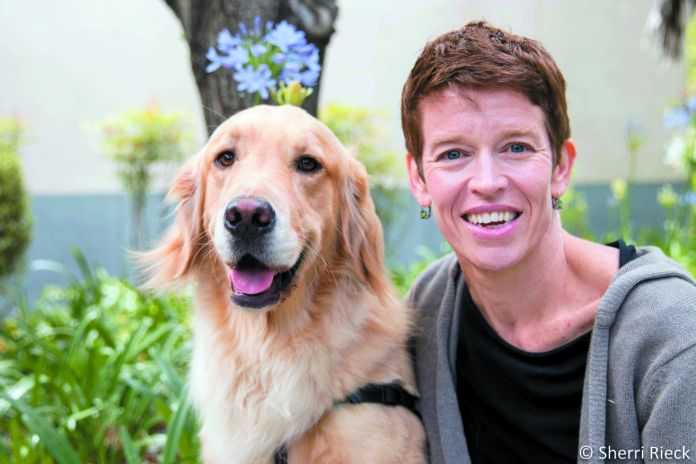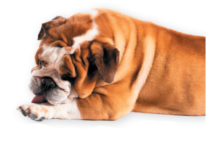
© Sherri Rieck
Microwave beeps, the chirps of a smoke alarm system when a battery is dying, cell phone noises, alarm clocks going off…these high-pitched sounds are just some of the noises commonly heard in your home that may leave your dog feeling extremely unnerved. Even noises with lower frequencies — the tumbling of a clothes dryer, a fan, a dishwasher — stress a number of dogs. Such are the findings of researchers at the University of California, Davis, who surveyed almost 400 people with dogs about their pets’ reactions to household sounds. In other words, it’s not just sudden booms like fireworks and thunder that can get some dogs going.
The investigators also found that those with pets may miss the subtle cues that a dog feels fear or discomfort when hearing certain noises, which include coming close to their human family members, lip licking, pacing, ear tucking, yawning, or simply retreating. Many dogs with fear of household noises bark, too, which might not be taken as a sign of stress since dogs bark for so many reasons. The investigators viewed more than 60 videos and other online compilations that showed people’s reactions to dogs’ often nuanced expressions of anxiety about household noises. Many missed their dogs’ behavioral cues signaling emotional discomfort outright, but about one in five people actually expressed amusement at dogs’ reactions upon hearing certain noises.
A learning curve for people
You don’t have to choose between your microwave or your pet. And no one is going to get rid of their cell phone or their smoke alarms. But because dogs who live with us in our homes are unable to control their level of exposure to the various sounds our appliances make, we can at least make an effort to understand that our pets’ welfare and sense of well being may be at stake when it comes to certain noises. We can check to see if the noises bother them and try to comfort them when they hear things they find troublesome or perhaps confine them to a space in the house where the disturbing noise may be less audible.
Lead researcher Emma Grigg, PhD, also suggests that if you can predict the stressful noise, perhaps remove the dog from your home during the time the noise will sound. “For example,” she says, “if you get a notice that your apartment building will be testing the fire alarm that day, bring your dog to a friend’s or doggy daycare for the day; have your partner walk the dog while you are vacuuming; etc. And for smoke detectors/carbon monoxide detectors, change the batteries regularly and well before you get the low-battery beep.”
Intermittent high-pitched sounds, the researchers point out, seem to bother dogs more than continuous low-pitched noises like those of the washer or dryer. It makes sense considering that dogs hear noises in upper ranges better than we do. Further, they say, “a significant proportion of adult humans over 48 years of age experience some degree of hearing loss, most likely involving sensitivity to higher frequencies. Thus, smoke alarms that are somewhat loud to most humans are likely to be painfully loud to most dogs.”
Dr. Grigg’s own dog, Bea, “is indeed sensitive to these sounds,” the researcher says. “In Bea’s case, I learned the hard way that the low-battery beep in the smoke detector or carbon monoxide detector, and the smoke alarm itself, get to her. She begins to shake and hides behind my legs or under my desk if she can’t get out into the back garden and away from the sound. But the study was actually inspired by my study coauthor Lynette Hart’s dog Ginny, who suffered from a similar fear.”





Fantastic article…Thanks for sharing such an amazing content with us.Good job.Keep it up.
I am reading similar things by many authors…except what to do about detecting and/or ruling out what noises are upsetting my dog. Our smoke alarms/co detectors are only a problem if they chirp; otherwise are at just 60 Hz. Any thoughts, anyone? Thank you!
Great Article and very informational. I always wonder what types of sounds upset my husky. Is it the vacuum cleaner itself or the noise. I know she doesn’t like thunder because she hides under the bed. I need to be more aware of how everyday sounds impact my dog. Thank you.
doggydreamtimeplus.com